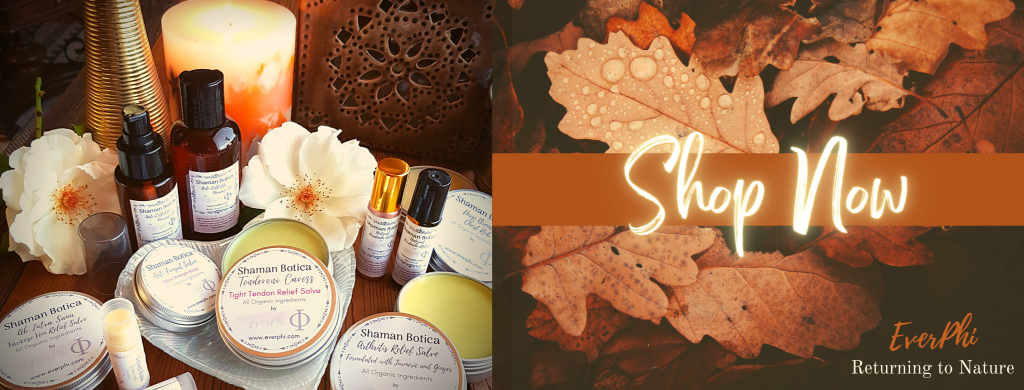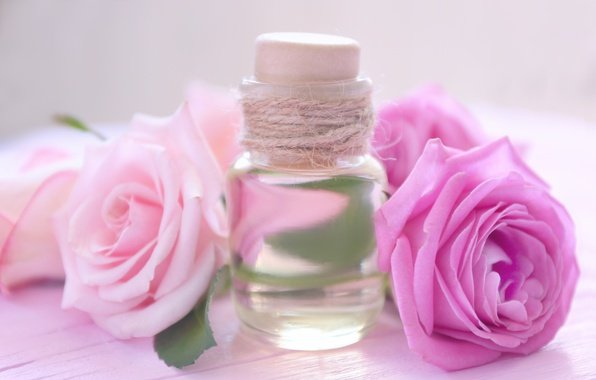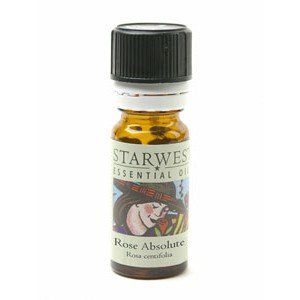
Rose essential oil is the aromatic substance distilled from the petals of Rosa x damascena mill L, commonly known as Damask rose, which is one of the most important species of Rosaceae family.
Generally, its aroma is described as exotic, floral, fresh, rich, sensual and sweet.
The chief producing countries of rose essential oil are Bulgaria, Turkey, Morocco and India. The oil is prepared in copper alembic stills by the peasant or in large factories under careful scientific control. According to Grieve, 4,000 kg of flowers yield 1 kg of essential oil.
Rose oil is very expensive and highly liable to adulteration. Its color is pale yellow to colorless and its consistency is semisolid (gel-like) at room temperature.
The portion which is solid at ordinary temperatures forms about 15-20%, and consists of odorless stearoptene containing principally saturated aliphatic hydrocarbons. To work with the oil, the heat of the hands must be applied to bring it to a liquid state.
Rose essential oil blends well with: cypress, geranium, vanilla, sandalwood, myrrh, frankincense, mandarin, orange, cardamom, fennel, clove, palmarosa, marjoram, grapefruit, ylang ylang, neroli, coriander seed, patchouli and jasmine essential oil.
Rosa x damascena Mill is the hybrid between R. gallica and R. Phoenicia, and is the member of Rosaceae family with more than 200 species and 18,000 cultivars around the world.
As the king of flowers, Rosa damascena has been the symbol of love, purity, faith and beauty since the ancient times.
R. damascena was brought to Europe and has been cultivated in European countries. Nowadays, Bulgaria and Turkey are the main producers of R. damascena essential oil in the world and the Bulgarian R. damascena oil is the known best ones.
Rosa damascena is a perennial bushy shrub reaching approximately 1 to 2 meters in height, with large, showy and colorful flowers. The leaves are imparipinnate and compound with 5-7 leaflets.
Its life span is up to 50 years, and its economic yield period is about 25 years. However, the gestation period is three years for attaining economic production level.
Due to the low oil content in Rose damascena and the lack of natural and synthetic substitutes, rose essential oil is one of the most expensive ones in the world markets.
Apart from the use of Rose damascena as ornamental plants in parks, gardens, and houses, they are principally cultivated for using in perfume, medicine and food industry.
For therapeutics purposes, several products and isolated constituents from flowers, petals and hips (seed-pot) of the plant have been studied in a variety of in vivo and in vitro studies, in which we will delve later.
There are evidences that Rosaceae family is an ancient plant. Some fossils of rose are found in America that are 30 million years old.
However, in our times, the origin of Damask rose is the Middle East and some evidences indicate that the origin of rose water is Iran, but the origin of its fragrant oil and extracts is Greece.
This plant is cultivated in all over the world including Iran, Europe, Bulgaria, Turkey and India. The major cultivation areas of R. damascena in Iran are Kashan, Fars and Azerbaijan, among them Kashan is the most famous one.
There are many evidences that cultivation and consumption of R. damascena in Iran has a long history and Iran is one of its origins.
It is believed that the crude distillation of roses for the oil was originated from Persia in the late 7th century AD, and spread to the provinces of Ottoman Empire later in 14th century.
Iran was the main producer of rose oil until the 16th century and exported it to all around the world.

The history of roses is broad. There are a number of traditions around this flower dating back thousands of years. The flower has been used since ancient times as an ingredient for beauty treatments, as well as for remedies and ornaments.
Among the most common therapeutic effects of R. damascena in ancient medicine are: treatment of abdominal and chest pain; strengthening the heart; treatment of menstrual bleeding and digestive problems; and reduction of inflammation, especially in the neck.
North American Indian tribes used a decoction of the root of R. damascena plant as a cough remedy to ease cough in children.
This plant is also used as a gentle laxative.
Rose oil heals depression, grief, nervous stress and tension. In addition, it helps in the reduction of thirst, healing old cough, special complaints of women, wound healing, and skin conditions.
Aromatherapy using rose oil, is helpful for some allergies, headaches, migraine and to improve the mood, among others.
Rose Otto is one of the most complex essential oils with 300 identifiable components. It is rich in alcohols supported by long chain saturated aliphatic hydrocarbons.
Among them, eighteen compounds represented more than 95% of the total oil. The identified major compounds are: β-citronellol, nonadecane, geraniol, and nerol and kaempferol.
On the other hand, analyses of rose absolute showed that phenyl ethyl alcohol, citrenellol, nonadecane and geraniol ethanol, and heneicosane are the major compounds.

The essential oil of Rosa x damascena Otto is one of the oils that has more affinity and care with our skin. Its anti-inflammatory, regenerative, astringent and antimicrobial properties will help us fight almost all skin conditions.
On the other hand, it has anticonvulsant, analgesic, bronchodilatory, antidepressant, aphrodisiac, antibacterial, antianxiety, antifungal, anti-spasmodic, calming, cephalic, cicatrisant, cooling, emmenagogic, hormone balancer, nervine, sedative, tonic and antioxidant effects.
Besides, rose essential oil helps balancing PMS and clears the mind (calming, exhaustion).
Currently, rose essential oil remains an important part of many traditions, but it is mainly used in beauty products, perfumes and other creations that require a sweet, soft and pleasant fragrance.
Rose essential oil is highly valued within the cosmetic and pharmaceutical world, as it contains a large number of beneficial properties for the body, as well as for medicinal and therapeutic applications.
In addition to having therapeutic properties, rose oil is also a known aphrodisiac agent.
It is an excellent cleanser to detoxify the body, and a digestive that can relieve stomach discomfort and control appetite.
This exquisite oil is able to rejuvenate cells, so it is used in a great way to treat wrinkles, burns, scars, acne, stretch marks and several skin diseases.
Therefore, rose essential oil is the main ingredient of many cosmetic products, both for the skin and hair care.
On the other hand, according to research, rose essential oil has a vibrational frequency of 320 MHz, which makes it the natural substance with the highest vibratory frequency, hitherto known by man.

For those people who are in the process of losing weight, rose oil is an excellent supplement that can accompany at this stage.
Thanks to its purifying compounds, it helps to clean the organism. Also, it will improve digestion and help control appetite.
On the other hand, rose oil can help avoid the anxiety that occurs when being on a diet.
Mainly, thanks to its soothing properties, rose essential oil can help reduce the redness and itching caused by a bite of an insect.
To use rose essential oil in a massage, just take a little oil and apply it to the skin.
This oil can be used pure, diluted with a carrier oil or adding a few drops to the body lotion.
Apricot kernel oil, coconut oil or almond oil, are good alternatives for blending.
Also, the properties of the treatment will be enhanced, since, when mixed with other oils, there will be an extra benefit for skin care.
Rose essential oil is the most used for aromatherapy sessions. This has an incomparable aroma that stimulates the senses and helps to improve certain situations.
This oil helps control attitudes of anger, jealousy, resentment and depression. The rose oil aroma acts as a mild sedative and also, has a powerful antidepressant. It is very useful for people who have experienced a near loss.
It also decreases stress. Due to its scent related to the feminine it helps to stimulate the identity or to improve a loving relationship. Also, rose essential oil, helps regulate menstrual problems, pain and nausea.
Several Pharmacological studies have been performed on R. damascena to evaluate its effects on the central nervous system (CNS). The activity of this plant on CNS are extensive.
Ethanolic extract contained in R. damascena oil has been shown to possess a potent depressant activity on CNS in mice.
Some of these effects that evaluated are hypnotic, anticonvulsant, anti-depressant, anti-anxiety, analgesic effects, and nerve growth.
It has been shown that Rosa damascena has wide spectrum antimicrobial activities. Essential oil, absolute and hydrosol are important products that showed these effects.
Ulusoy et al (2009), showed that essential oil and absolute have strong antibacterial activity against Escherichia coli, Pseudomonas aeruginosa, B. subtilis, Staph. aureus, Chromobacterium violaceum and Erwinia carotovora strains.
The C. violaceum was the most sensitive microorganism against rose essential oil and absolute.
In other study, the essential oil of R. damascena petals was evaluated for its antibacterial effects against three strains of Xanthomonas axonopodis spp. vesicatoria. The essential oil of R. damascena, remarkably inhibited the growth of the tested strains of X. axonopodis vesicatoria.
Essential oils of several plants including R. damascena were also tested for antimicrobial activity against gram-positive Staph. aureus , gram-negative E. coli, gram-negative Ps. aeruginosa, and yeast Candida albicans. The tested essential oils exhibited inhibitory and bactericidal activities against all tested microorganisms at low concentrations.
The R. damascena similar to many aromatic and medicinal plants exhibits antioxidant properties. Sources of natural antioxidant are primarily phenolics compound.
They determined antioxidant activity of this extract compare to standard antioxidant L-ascorbic acid by 1, 1-diphenyl-2-picryl hydrazyl (DPPH) free-radical method.
The antioxidant activity of rose essential oil was also evaluated by DPPH for measurement of free radical scavenging activity, and by ferric ammonium thiocyanate method for evaluation of lipid peroxidation properties.
The results showed a potent antioxidant and lipid peroxidation inhibitory effects comparable to α-tocopherol, and suggest that rose essential oil can be considered as a medical source for the treatment and prevention of many free radical diseases.

Research about respiratory effect of R. damascena, showed the effect of ethanolic extract and essential oil on tracheal smooth muscle of guinea pigs.
The results showed a potent relaxant effect of extract and essential oil that was comparable to that of theophylline. The exact mechanism of antitussive effect of R. damascena is not clarified. However, this effect, might be due to its possible tachykinin inhibitory substance content mediating both bronchodilatory and antitussive effects.
The mechanism of relaxant effect of Rose oil on tracheal smooth muscle of guinea pigs is unknown. This effect may be produced by several different mechanisms. Because the relaxant effect of adrenoceptors on guinea pig airway and bronchodilatory effect of H1 blocking drugs have been shown previously, is suggested that some components of this plant can stimulate β-adrenergic receptors or inhibit histamine (H1) receptors.
The essential oil of R. damascena in acute pentylenetetrazole (PTZ)-induced seizure in rats, delays the start of epileptic seizures and decrease the duration of tonic-clonic seizures (stage 4).
In chronic model of PTZ-induced seizure, this plant also caused prolongation of latent periods before tonic-clonic generalized seizures.
Injection of essential oil 30 min before amygdale electrical kindling also reduced appearance of 1st, 2nd, 3rd, 4th, and 5th stages of seizure and could reduce the time after discharge duration.

It is suggested that essential oil of R. damascena retarded the development of behavioral seizures in amygdale electrical kindling and possesses the ability to counteract kindling acquisition.
Authors suggested that the flavonoieds maybe involved in this effect. It is reported that flavonoieds act on GABAergic system in the brain. Flavonoieds can also enhance the effect of benzodiazepines on GABA receptors.
The effects of the essential oil of R. damascena as an adjunct in treatment of children with refractory seizures were also studied and showed a significant reduction in the mean frequency of seizures in patients using essential oil of the plant. Therefore, the essential oil of R. damascena has beneficial anti-epileptic effect in children with refractory seizures.
Rose oil is a very helpful product in skin care. Thanks to its properties, vitamins, minerals and antioxidants, if used constantly, it can noticeably repair the tissues and rejuvenate the appearance of the skin.
This oil is highly recommended for people who have sensitive skin, as its components strengthen the tissues. Rose essential oil can be used as a subtle sunscreen, since it can protect us from UV rays.
In addition, its vitamin C content and its antibacterial properties, can help eliminate completely juvenile acne problems.
Also, rose oil can relieve irritation and redness of the skin and cure diseases such as eczema and psoriasis.
As we mentioned earlier, rose essential oil is one of the most recommended oils to treat skin conditions. It is extremely rich in components that promote skin health, and prevent and reduce the effect of existing skin diseases.
Additionally, among its components, there is a high amount of vitamins, antioxidants, minerals and other chemical compounds that provide regenerative, antibacterial and moisturizing properties.
In this way, rose essential oil can eliminate bacteria that act on acne conditions, reduce redness, regenerate the skin and avoid the marks left by this problem.
Also, due to its vitamins content, and antioxidants and regenerative properties, this oil can significantly attenuate wrinkles, since it considerably improves the skin tissue and gives back the characteristic qualities of a young skin.
Rose essential oil stimulates the circulation of blood in the area where it is applied.
The vitamins that predominate in rose oil are vitamin A, C, E. Besides, it contains several bioflavonoids, which helps to purify the entire body.
The regenerative power of rose essential oil helps nourish the hair and strengthen the scalp health, thus obtaining a softer, brighter, more manageable and stronger hair.
To use rose oil on the hair, apply a few drops all over the scalp performing massages with the fingertips in circular motions. Then, leave on for at least 20 minutes and remove with a normal wash.
When performing this treatment once a week, you will notice an evident improvement.

It is not known whether this drug passes into breast milk. Consult your doctor before breast-feeding, especially if you are applying this product to the breast area.
You must take into account not to exceed the doses used, as you can cause unfavorable reactions on the skin.
Essential oils should be diluted in a carrier oil before topical use and should not be applied to the eyes or mucous membranes or used excessively.
With any essential oil, there is the risk of contact sensitivity. A skin patch test is recommended prior to using any new essential oil topically.
Always keep rose and other essential oils out of the reach of children and pets.
Where to buy Rose Essential Oil?
Generally, good quality oils, that is, 100% pure and not mixed with other substances, can be found in specialized natural herb stores. Especially if we look for the therapeutic properties contained in it.
If you can not reach a trusted naturist or herbalist shop near you, here are some recommendations:
Rose Absolute Essential Oil by StarWest Botanicals:
 One of the best all-purpose oils to have around.
One of the best all-purpose oils to have around.
Scent Characteristics: Deep, rich, sweet, spicy-floral scent. Shop Here.